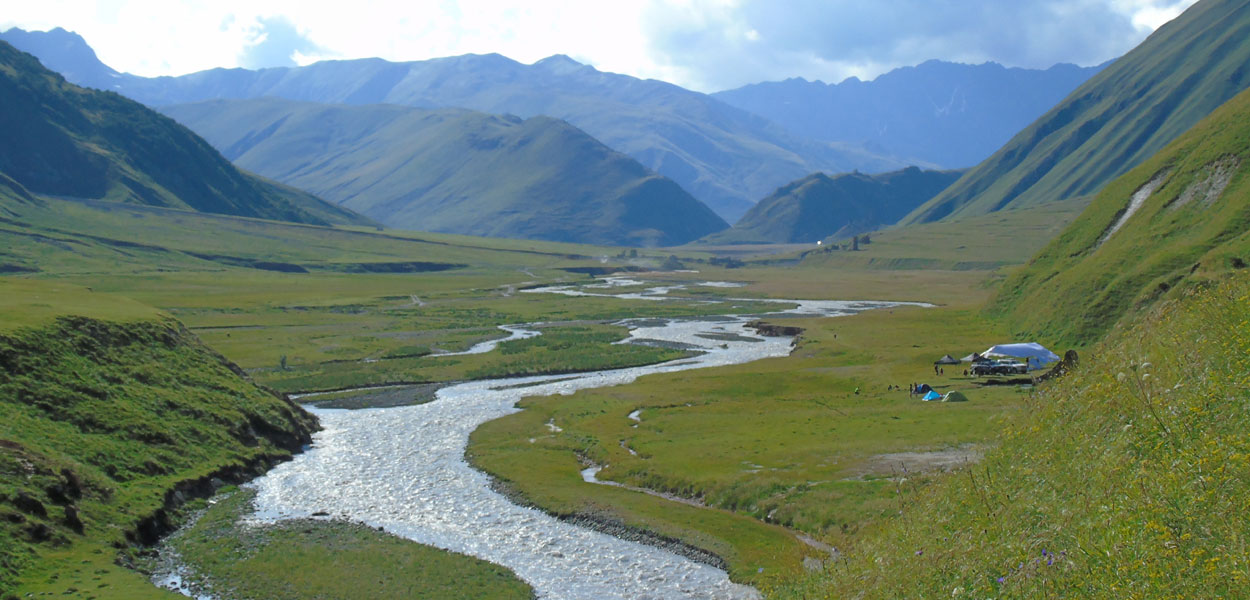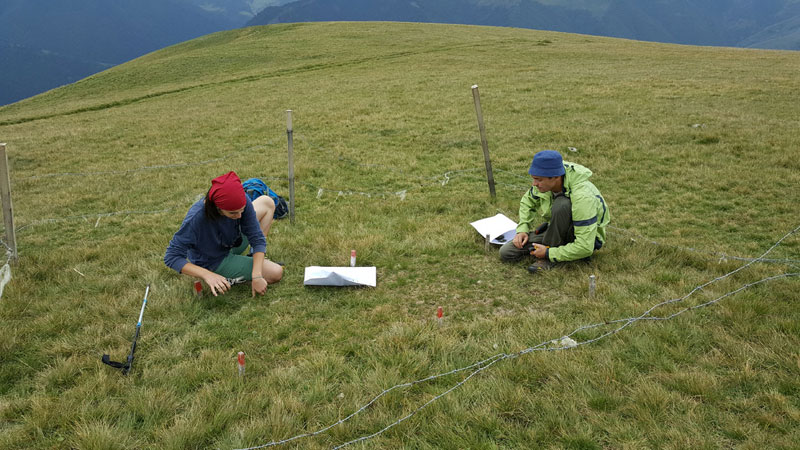
Grassland ecosystems are an important part of Georgia’s habitat diversity while harbouring rich flora and being home to numerous species of invertebrates as well as wildlife, they also provide essential ecosystem services to society such as grazing opportunity for livestock. Supported by its donors/partners NACRES has been carrying out conservation research and monitoring of these significant ecosystems throughout Georgia over the last 15 years.
The Grasslands Monitoring Programme for Protected Areas, commissioned by CNF aims to establish a baseline in order to better understand and manage these ecosystems. Local communities have been utilizing grasslands, which are presently within protected areas, as livestock grazing land for hundreds of years; understanding the impact this has, as well as developing ways to maintain healthy grazing practices, is an essential part of pasture management.
Previously there has been relatively little monitoring of grassland use in Georgia, and thus little knowledge of how to maintain a healthy grassland ecosystem in grazing areas. This monitoring program will determine which grasslands are being used to graze livestock, how many herds are being grazed each year, who owns the livestock, and approximately how many animals are grazing. The data collected by the monitoring project will be used by the APA, PA managers, and on-the-ground researchers. Local communities and municipalities will also use the data to better manage their land and its usage. Currently, there is much grazing land that has been eroded by improper use or overuse; the hope is that by monitoring these areas and developing an understanding of healthy grazing practices, the pastures can be maintained for continued use in the future.
This year, monitoring will take place in Kazbegi National Park, while previous years have seen evaluations of Borjomi, Javakheti, Vashlovani, Lagodekhi and Algeti National Parks.
Kazbegi National Park is situated in the Kazbegi municipality in the historical Khevi province presently within the Mtskheta-Mtianeti region. The national park borders the Russian Federation to the north, and Dusheti municipality to the south. To the south-west, the park borders the territories occupied by Russia − Akhalgori and Java municipalities. This latter fact may affect the implementation of this project.
Project Objectives:

Expected outcomes
The main outcomes of the Kazbegi NP grassland assessment will include: (i) identification and a distribution map of grassland habitats and (ii) a data base that will include pastures biodiversity, fodder quantity and ecological status.
The results of the study will contribute to the necessary baseline for the conservation and effective management of the grasslands in Kazbegi NP as well as for the elaboration of pasture management plan.
Project status: Active
Project location: Kazbegi National Park
Project Coordinator/Team: Dr. Kakha Artsivadze
Donors/Partners: Caucasus Nature Fund (CNF), the GEF/UNDP project “Enhancing financial stability of the Protected Areas system in Georgia.”